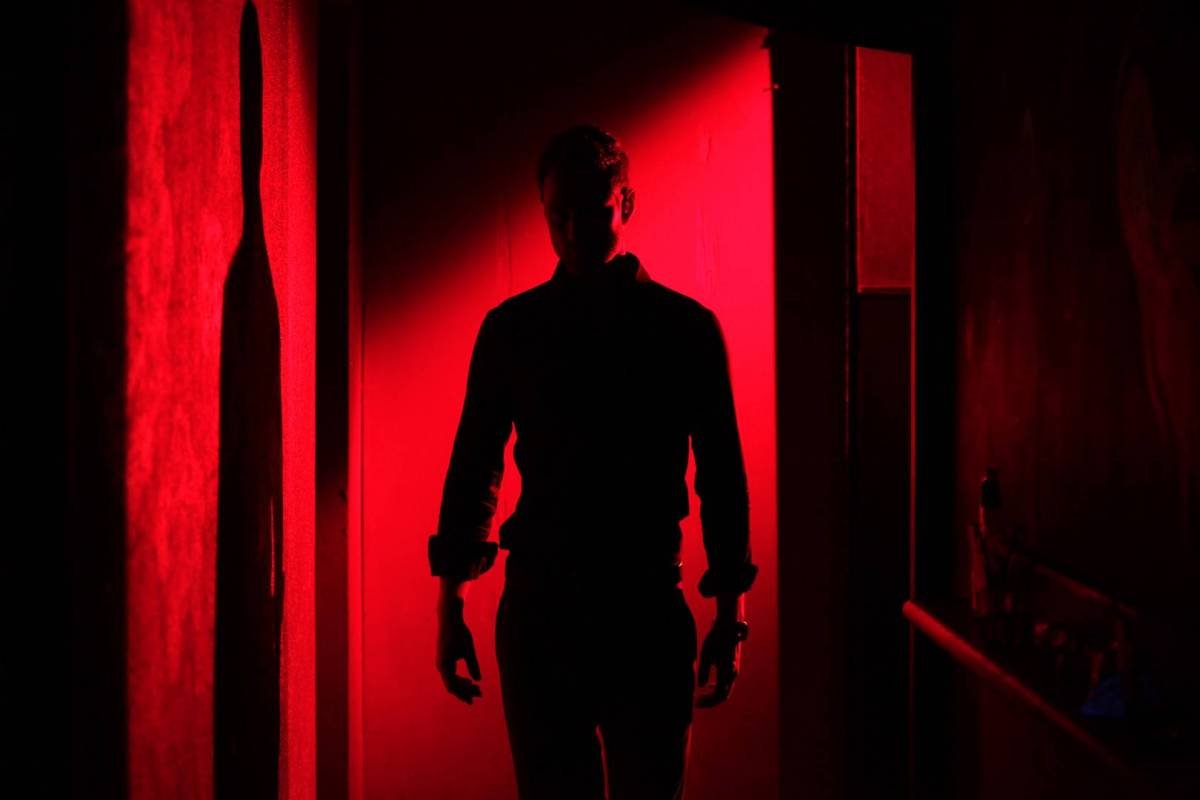Starring Andrew Jenkins
A troubling and subversive idea is treated with above average flair in Lost Solace. Here’s a locally made feature that asks us to divide our sympathies between three psychopaths—or maybe two psychopaths and a guy with borderline personality disorder. It’s the viewer’s call, based on whatever accord you want to make with the film’s probably not very accurate science.
Still, it’s a thrill ride, especially in its first half, when Lost Solace introduces us to the cold-blooded Canadian Psycho, Spence (Andrew Jenkins, who also shares a writing credit with director Chris Scheuerman), first seen closing a long con on a West Van upper management type as he relieves her of her car and whatever other valuables he can grab.
Spence’s routine is neatly established after that great opening. Jenkins could belong to the Tobey Maguire/Jake Gyllenhaal tribe of wan, affectless pretty-boys, and he looks great with his shirt off (or on). And so we buy into this man’s ability to seduce pretty much anyone in his single-minded devotion to criminal thrills, emotional sadism, and financial advantage. (He keeps a well-stocked trophy room behind a padlocked door in his dockside loft.)
Spence’s super-slick practice is knocked sideways, however, when he barges into the backroom of a nightclub and helps himself, with double-edged charm, to a couple of rails and what he assumes is MDMA. (Provided, in a nicely skeezy cameo, by the always welcome Brendan Fletcher.) Turns out that what he really took is so powerful that our psychopathic anti-hero is assaulted with, ugh… actual human feelings! Know your dealer, kids.
It’s an intriguing idea, particularly as Spence very much prefers the comforts of being empathy-free. More to the point: he’s secretly partnered with the emotionally disturbed Jory (Charlie Kerr), brother of his latest mark, Azaria (Melissa Roxburgh). Jory has negotiated with Spence to kill their father for a piece of his huge inheritance. Complicating matters further is that the old man (Michael Kopsa) is even more bereft of decency than Spence, and every bit the strategist. Once they meet, a beautifully written and played scene has the two men simultaneously sniffing out and toasting the other's ruthlessness.
Up to this point, Lost Solace keeps us well-enough invested in its upside down moral universe that we actually want Spence to succeed, more than we root for the innocent Azaria. All of the male characters in this film are vile, or very broken, and I suspect that it isn’t accidental that it’s a female doctor who tries to intervene when his dawning humanity reduces Spence to a convulsing, hallucinating wreck. Yet here we are, on side with him.
So, what are we being told here? Scheuerman and Jenkins don’t seem to have that part quite figured out as Lost Solace unravels in a third act full of people running around hospital corridors with no clear goal in sight. We can relate when a terrified but confused nurse asks Spence, busy flipping in and out of psychopathy, what it is that he wants, exactly.
Off-the-shelf psychedelic effects also drain some of the good from a film strong on performances, mood, and a lot more besides. But Jenkins is one to watch, for sure, while there’s something very powerful in Scheuerman’s alluringly shot vision of Vancouver—playing itself, or not—as a gleaming citadel of 21st century wealth and Hobbesian cruelty.
Georgia Straight, January 2018
